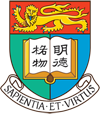 |
THE UNIVERSITY OF HONG KONGDepartment of Civil EngineeringCapstone Design Project 2025-26 |
Introduction
Capstone Design Project is a course offering experience in multi-disciplinary project-based learning. Students are expected to take this course in the final year of study by which time most of the required courses should have been taken. The capstone experience is an essential component in the 4-year undergraduate curriculum reform. The course Capstone Design Project provides an opportunity for students to integrate and apply their knowledge acquired so far.
The course comprises a comprehensive group design project and a series of seminars. Students are expected to undertake independent project work and substantial amount of self-learning effort.
More information is available at the Student Intranet (http://www.civil.hku.hk/civil_intranet/index.html) and for those who have successfully enrolled in the course at Moodle.
Design Project
Students are divided into groups of about 6-7 students to carry out design work from the initial stage of feasibility study, to preliminary design and then to the last stage of detailed design. There are two design projects for the whole class, i.e. one on building development and the other on civil infrastructure. The whole class is divided into 20 groups, tentatively with 10 groups working on the building development project and 10 groups working on the civil infrastructure project, namely
- Groups FA to FJ: Cyberport Expansion at Telegraphy Bay, Pok Fu Lam
- Groups FK to FT: Northern Metropolis Highway – Kwu Tung Section and the New Territories North New Town Section
Each group is assigned a Staff Tutor and an Industrial Tutor for supervision, a Moderator for additional assessment and advice, and overseen by a Project Coordinator. The Staff Tutor, Moderator and Industrial Tutor of each group will have different background so that students will get advice in most aspects.
Students are expected to work continuously on the project assigned. They are required to report their progress regularly by attending the regular progress meetings with the Industrial Tutor and other teachers. They will get feedback and assessment from teachers. The Staff Tutor and Moderator will provide feedback and carry out assessment regularly. The feedback from teachers will be posted on the Moodle website and shared by all teachers.
Students will be assessed on their Inception Report, Report on Feasibility Study and Preliminary Design, Report on Detailed Design, together with the associated Progress Meetings, Oral Presentations and Posters.
Seminar Series
A number of seminars will be organized to provide students with the background knowledge needed for the project work. For three of the seminars, students are required to submit technical reports afterwards. For the rest, students are required to submit short reports shortly after the seminars.
The tentative titles of seminars are as follows:
- Civil and building projects in HK
- Cost estimation
- Drainage impact assessment
- Environmental impact assessment
- Geotechnical engineering practice
- Infrastructure development - investing in our future
- Introduction to architectural design
- Introduction to building services engineering
- Introduction to civil & structural engineering software
- New Engineering Contract (NEC)
- Traffic impact assessment
- Water supply & distribution
- MiC, BIM and Modern Construction
- Railway development in HK
Digital Resource Centre
A Digital Resource Centre has been established at http://civil8.hku.hk/cdp_drc. There are five main categories of the reference materials: structural, geotechnical, environmental, transportation and project management. Self-learning materials are being developed. Details for access will be provided to those enrolled in the course later.
Advice for Students
Each group should preferably comprise students taking elective subjects in various fields required by the design project. It is desirable for students to do sufficient self-study (e.g. design method, software for analysis and design, etc.) in chosen fields before commencement of the design project in September.
To tackle a design project, one should note that the proper way is NOT to do the easy parts first, but to identify and face the MOST CRITICAL STEPS first. Reversing the order may cause abortive work.